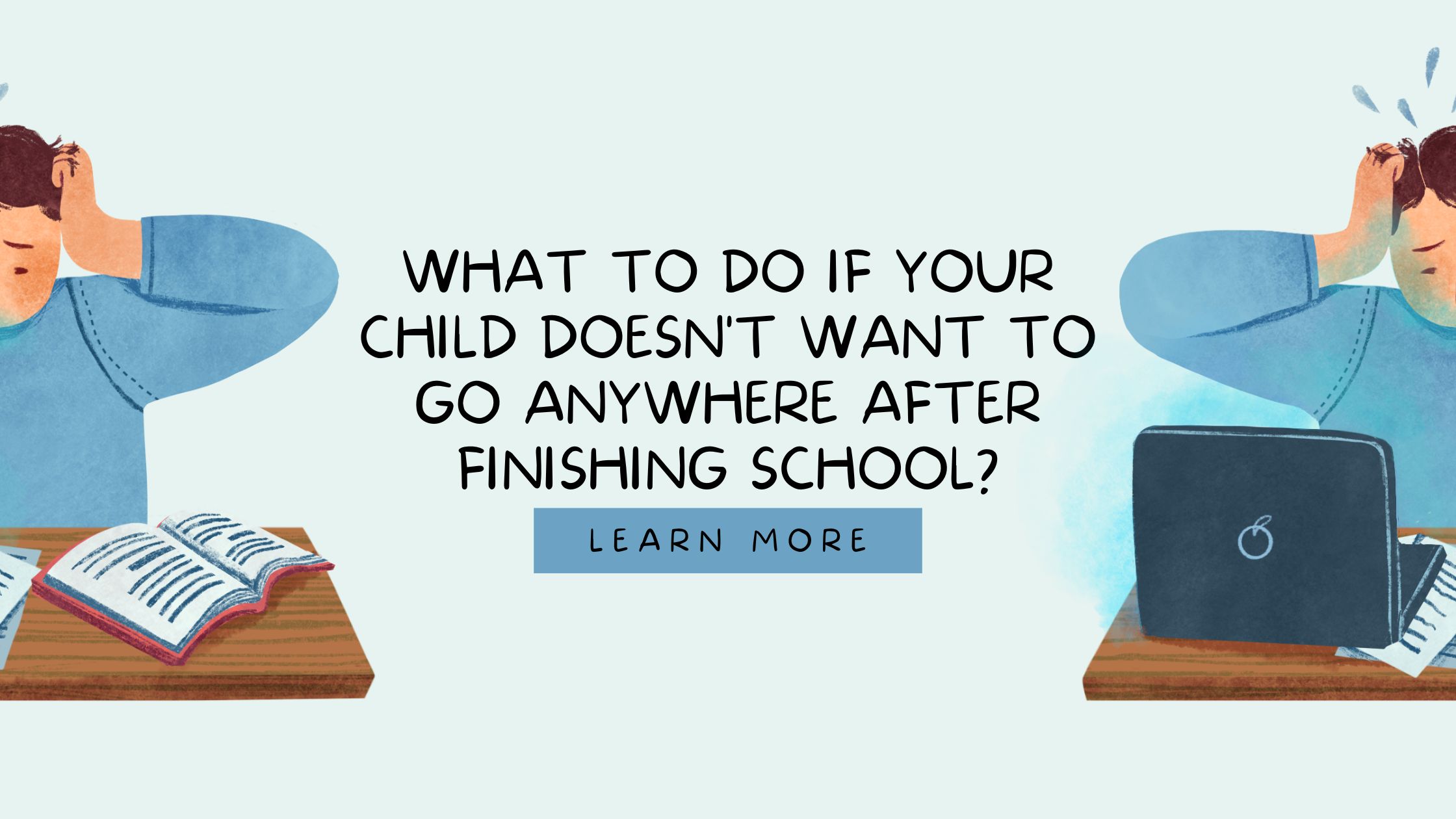The applicants are coming to the finish line. What can you do if your son or daughter doesn’t care whether they enter, or if they succeed, who they will study for? Rather motivate? Just force? Let the child get a higher education, and then we’ll figure it out? Research into the characteristics of the Generation Z (those under 20) and expert advice can help sort things out.
1. Don’t persuade, but advise to listen to yourself.
Experts say you won’t find it hard to accept your views on the benefits of higher education, the value of a particular field of study, or your choice of university. The opinion of parents is fourth on the list of reasons why today’s teenagers should decide on their further education. Parents’ or teachers’ points of view can be very outdated, says Nick Hillman, director of the Higher Education Policy Institute in the United Kingdom. And higher education institutions, in his opinion, are not interested enough in whether their former students work in their field of study, especially those who did not care where they studied. But understanding yourself is not an unreasonable proposition for a graduate. It is their own choice that most of the Zoomers trust. And indifference to the future can mean that parents pushed too hard with their own decisions, or that the teenager listened to someone else – buddies, bloggers, or other authority figures. If he realizes this, it will be easier to honestly decide what profession he aspires to master.
2. Pay attention to pandemic specifics.
The new generation has a harder time accepting uncertainty, so now they tend to “sit it out”, just to avoid getting huge tasks to study on their own in quarantine. That is why Phil Bloor, head of admissions at Sheffield Hallam University in the UK, advises asking select universities how exactly they will study if quarantine involves temporary distance learning. This is where parents can help. Ask about specific plans for the required department (because the same institution can be nuanced – for example, it has developed a fully online course for future lawyers, but nothing for philologists). It is better to know the impressions of the students who studied last year as well. The more detailed the incoming student’s knowledge of the study plan for any case, the less he/she will be anxious about entering this year.
The service, which has already hundreds of satisfied students, will always help you cope with home assignments. You can completely rely on this service and not worry about writing any academic papers. Just choose the university you like, and the service WritingAPaper will make your studies easy and save you from emotional burnout. The last one is really spread among this generation of teenagers.
3. It is better to pay attention to the disadvantages than to the advantages
Zoomers think in terms of “what I’ll get” rather than “what’s missing”. That’s why they give more credence to remarks about disadvantages. You don’t need to describe the importance of higher education in life. Better honestly, without panic, talk about the disadvantages of life without a student years. But without the banal “you’re going to be a janitor”. It should be a detailed report with figures. This will work even better when it comes to the graduate’s plans to, say, start a music band or become a blogger instead of studying.
4. Take a hobby as your starting point
If you think your child isn’t interested in anything at all, you’re probably wrong. Most teenagers today are determined as early as 14. Adults just don’t want to think of it as a choice. We are talking about favorite hobbies that Zoomers would also like to pursue in their chosen jobs. Try to find things that the child would like to improve in and that the chosen department can help with. If your son or daughter seems frustrated, it’s better to apply for another major than to kill the motivation altogether.
5. Give a picture
Zoomers think in images, and some little things can be decisive for them. Let’s say they won’t want to pursue a more or less interesting major if they imagine studying in uncomfortable academically pompous classrooms (or generally shabby). Many universities have put virtual tours online this year, so start there.
6. Talk about practical benefits during your studies, not afterward
Zoomers are much more practical than previous generations. They need material incentives, although they often perceive them naively. Even the availability of biscuits and coffee at the employer’s expense inclines them towards the job. It’s the same with studies. Teenagers want to become entrepreneurs, bloggers, and athletes. Romantically perceive that they don’t need to know anything to do so. “A double degree” or the pathological reputation of higher education will not impress the modern teenager, nor will manna heaven after graduation. Another thing is that the students of a certain university are taken for practical training by firms “with a name”, that the practical work will be interesting, the skills will be useful for other work.
7. Rely on those who are an authority on your child
According to a study by Morning Consult, an American company, 8 out of 10 young people take advice from bloggers and the choices they make. Indeed, video diaries are not about education. Dig through the information and find those bloggers who study at universities or their remarks to help the cause. Zoomers trust their peers three times more often than their parents.
8. Prove that the university is better than Google
Today’s generation appreciates what cannot be found on the internet. The information for lecturers can be found or listened to by the best speakers. So the cases, creative tasks, and contemporary experiences that are not widely available will be valuable.
9. Speak globally
Parents usually get lost when it turns out that the traditional delights – fame and power – don’t work for today’s teenagers. For example, only 1 in 7 teenagers wants to be famous. Categorically do not want to be responsible for others, to assume responsibility, so most young people are not interested in quick career advancement, or a managerial position. However, they should not be considered down-to-earth.
On the contrary, graduates (two-thirds of respondents) are interested in the ability to influence the global situation in the world. So say a game developer can create one that influences the opinions of people in different countries. And a pharmacist can develop a vaccine for COVID-19 with colleagues.
10. Think of the institution of higher education as part of the mosaic
The parental heart wants to choose the best university for their son or daughter. And they don’t understand when they plan: I’ll study here for a year, then another, then I’ll go to a third for my master’s degree. This is part of a lifelong learning mentality. People will still be lifelong learners. So a child does not naturally plan for higher education, but for a combination of the courses he needs, a kind of educational mosaic.
11. Don’t talk about vocation
Read the previous point. Zoomers don’t believe in one vocation but see whole clusters of interests as important to them. So an interesting idea for them is not to choose one thing, but to find a way to make a mix, do everything at once and link it to higher education.
12: If your child doesn’t want to enroll, discuss the gap year
In the UK one in ten graduates takes a gap year after school and travels around the world, taking part in volunteer programs. It is also possible to go to short online or offline courses in any sphere you like. In any way, you should know about the best writing services, which obviously can be useful for you in studying. In Israel, many school graduates (both boys and girls) work and save money and do small projects of their own to pay at least half of the cost of their travels after their compulsory military service. And then they go to another country. In addition, there are many international volunteer projects in which yesterday’s schoolchildren can get involved.


